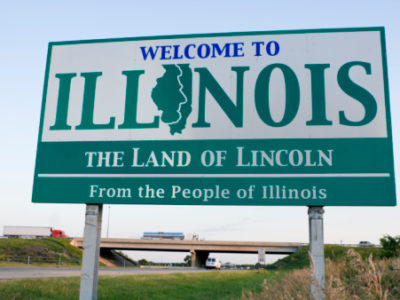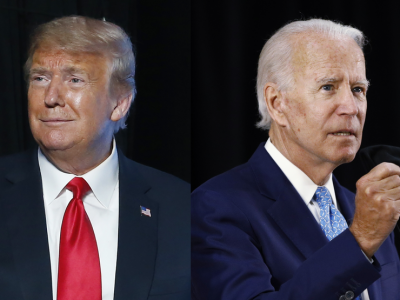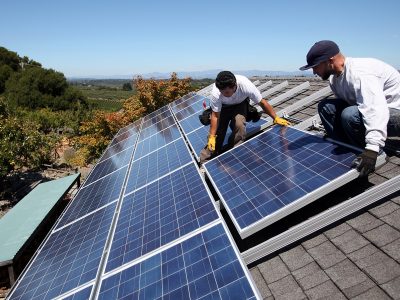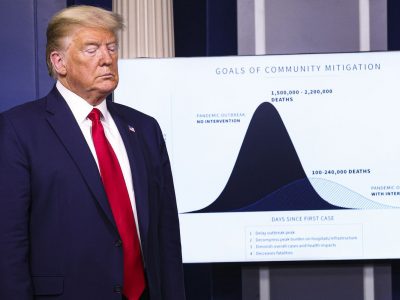Greening the Land of Lincoln
Illinois passes pathbreaking energy law.
Last week, Illinois’s governor signed into law a major piece of climate legislation. The law deserves more attention than it has received. Sadly, however, Illinois seems to be something of a neglected stepchild in the media. That’s a pity, because there are some important lessons in Illinois’s experience, both for the Midwest and the country as a whole. Maybe because it’s in “flyover country,” the state of Illinois suffers in terms of media attention. A ...
CONTINUE READINGCalifornia Enacts Historic Housing Reform Laws
Legislation Promotes New Housing, Infill Development, & Reduced Air Pollution
The California Legislature recently enacted, and Governor Gavin Newsom last week signed into law, two major housing reform measures. SB 9 and SB 10 represent California's most transformative new housing laws in decades, and are a belated but welcome legislative response to the state's longstanding housing crisis. SB 9, authored by California State Senate leader Toni Atkins, effectively ends single family residential zoning in most urbanized areas in California. Sp...
CONTINUE READINGThe Last Four Years — and the Next Four
How did our predictions about Trump hold up? What should we expect for Biden?
In September 2017, Eric Biber and I published a threat assessment after the first 200 days of the Trump Administration. For those who have buried their memories of that time, those were days of shock and despair about the future of environmental protection (and much else). It seems time to bring our report up to date. Where were we right or wrong? And what does this says about Biden’s prospects? The 2017 report was organized at the tool that Trump could use, rather ...
CONTINUE READINGCitations for environmental and energy law scholars 2021
The most-cited environmental and energy law professors from 2016-2020
Brian Leiter at Chicago is once again doing his occasional series identifying the top cited legal scholars in the United States in a range of substantive areas. As I did the last time Leiter posted these totals, I thought it might be helpful to our readers to have a list that is focused on US scholars who work substantially or primarily on environmental and energy law. Like prior years, I haven’t separated out scholars whose work is not primarily in environmental law, ...
CONTINUE READINGIs the ‘Vaccine Mandate’ Legal?
Despite all the political huffing and puffing, Biden's order has a solid legal basis.
Incensed critics are calling Biden’s proposed “vaccine mandate” an outrageous usurpation of power. They need to take a deep breath. It’s not really a vaccine mandate, the only statutory issue is procedural, and there’s no constitutional problem. Calling Biden’s order a vaccine mandate is misleading. It could just as well be considered a testing mandate with a vaccination opt-out. Biden has directed OSHA to develop a rule requiring “all employers with 100...
CONTINUE READINGVacancy
A Key White House regulatory office has remained unfilled for a record time.
The Biden Administration is looking to make big regulatory changes, not least regarding climate change. Yet the White House office overseeing regulations is vacant. The obscurely named Office of Regulatory Affairs and Information (OIRA) has to sign off on all significant regulations. Even the dilatory Donald Trump had nominated a permanent administrator by July of his first year. Biden’s delay in filling this important office is hard to defend. The main reason for...
CONTINUE READINGLabor and the Environment
Let’s talk about jobs and environmental protection.
Labor Day is a good time to talk about an important topic: the impact of environmental protection on jobs. This is a clearly a fraught issue. In support of his deregulation campaign, President Trump promised to “cancel every needless job-killing regulation and put a moratorium on new regulations until our economy gets back on its feet." Biden, on the other hand, has said that “creating jobs and tackling climate change go hand in hand.” As illustrated by Trump's ...
CONTINUE READINGTackling Agricultural Methane: An Overview of the Science
Promising strategies and technologies to address an urgent climate priority
(This post was authored by Eric Peshkin, a JD candidate at NYU School of Law and CLEE summer research assistant) Agricultural greenhouse gas (GHG) emissions from the raising of livestock and growth of crops for human consumption represent 14% of global GHG emissions. Methane (CH4) is a central GHG generated during agricultural production (via microbial methanogenesis, a process which occurs under anaerobic conditions such as those of the rumen of some livestock, flood...
CONTINUE READINGDisaster Mismanagement
12 Lessons from the COVID response in how NOT to manage a crisis.
The Trump Administration’s bungling of the coronavirus pandemic surely should feature in management textbooks. Just about everything that could go wrong, did go wrong. Some of the problems derived from having a top manager who was fundamentally indifferent and seemingly incapable of grasping basic facts. But other problems were due to inability to manage the organizational response. There are now several books about the pandemic response, of which Nightmare Sce...
CONTINUE READINGCalifornia’s Recall Election Has Serious Climate and Environmental Implications
A new governor wouldn't disrupt core mandates but could redirect spending and priorities
(Many thanks to my colleagues Ken Alex, Louise Bedsworth, Jordan Diamond, Nell Green Nylen, and Katie Segal for their contributions.) On September 14, California will hold a gubernatorial recall election to decide two questions: 1) whether to remove Governor Gavin Newsom from office; and if a majority of voters choose removal, 2) who will replace him. Recent polls indicate a very close race on Question 1. Talk show host Larry Elder, former gubernatorial candidate John...
CONTINUE READING










